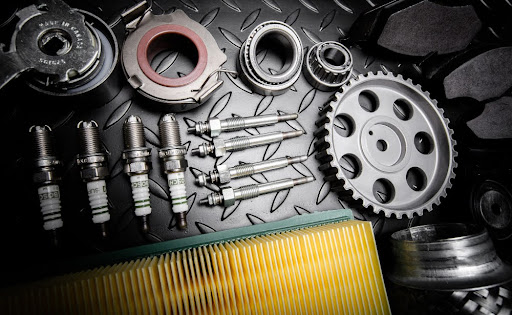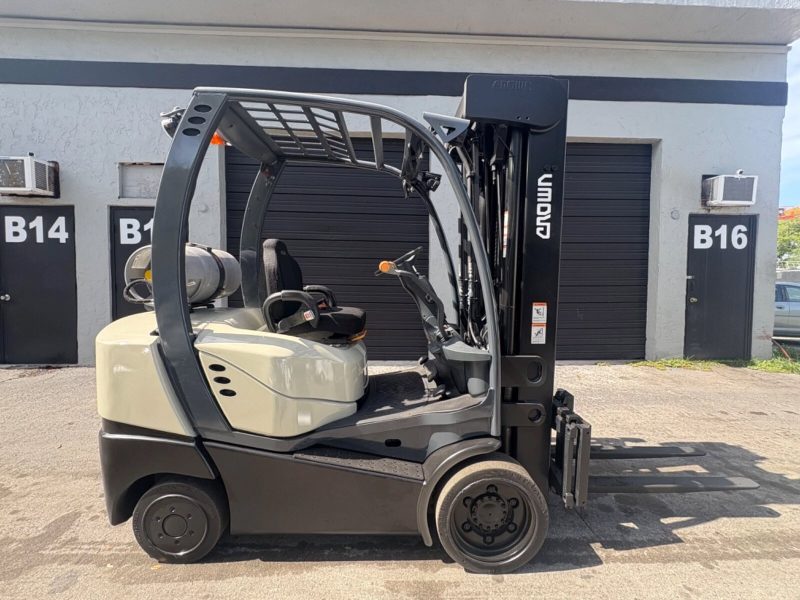Owning a truck, whether for personal use or as part of a fleet for your business, comes with a significant responsibility. Regular truck maintenance ensures your vehicle operates efficiently, remains safe on the road, and has a long service life.
This blog will discuss a comprehensive list of truck maintenance tasks every owner should know to keep their trucks in good condition.
Oil Changes
Regular oil changes are a fundamental aspect of truck maintenance. The engine oil in your truck serves several critical functions, including lubricating moving parts, cooling the engine, and removing contaminants. Over time, engine oil breaks down and becomes less effective, leading to increased engine wear and reduced performance. Therefore, changing the oil regularly is crucial, as the manufacturer or your mechanic recommends. This ensures your truck’s engine operates smoothly, extends lifespan, and maintains optimal fuel efficiency.
Tire Care
Tire care is essential for safety and efficiency. Start by regularly checking tire pressure to match the manufacturer’s specifications. Properly inflated tires improve fuel economy and provide better handling. Inspect truck tires for any signs of wear and uneven patterns. Rotating tires regularly will promote even wear and extend their lifespan. Lastly, maintaining proper wheel alignment and balancing helps prevent premature tire wear and ensures a comfortable, stable ride.
Brake Inspection
Brake inspection is a critical safety aspect of truck maintenance. Your truck’s brakes are vital for stopping safely and avoiding accidents. Regularly inspect the brake pads, rotors, and brake fluid levels to ensure they are in good condition. Listen for any unusual noises when braking, as squeaking or grinding sounds may indicate the need for brake pad replacement. If you notice decreased braking performance or any signs of brake fluid leakage, address the issue promptly. Proper brake maintenance ensures your safety on the road and prevents costly repairs in the long run.
Air Filter Replacement
The air filter in your truck is responsible for dust, dirt, and other contaminants filtering from the air entering the engine. A clean air filter maintains optimal engine performance and fuel efficiency. Over time, the air filter can become clogged with debris, reducing airflow and potentially causing poor fuel combustion. Regularly inspect and replace the air filter according to the manufacturer’s recommendations or more frequently if you operate in dusty conditions. A clean air filter ensures the truck engine receives clean air, which is vital for combustion and longevity.
Coolant System Maintenance
Maintaining your truck’s cooling system prevents overheating and engine damage. Regularly check the coolant level and condition to ensure it’s at the appropriate level and free of contaminants. Inspect hoses, connections, and the radiator for signs of leaks or damage. The coolant should be replaced based on the manufacturer’s guidelines to prevent corrosion and maintain proper engine temperature. Remember that neglecting the cooling system can lead to engine overheating, resulting in costly repairs or even engine failure.
Transmission Fluid Check
The transmission fluid in your truck serves as a lubricant and coolant for all transmission components. Inspect the transmission fluid level and ensure it’s within the recommended range and free from debris or discoloration. If the transmission fluid is low or shows signs of contamination, it should be changed according to the manufacturer’s guidelines. Maintaining transmission maintenance can lead to better shifting, reduced fuel efficiency, and costly repairs. Properly keeping the transmission fluid helps ensure smooth gear shifts and extends the life of the transmission.
Battery Care
Proper battery care is essential to ensure your truck starts reliably. Regularly inspect the battery terminals for corrosion, ensuring they are clean and buildup-free. Securely mount the battery to prevent vibrations that can damage internal components. Additionally, check the battery’s overall condition, including the cables and connections. Over time, truck batteries can deteriorate and lose their charge-holding capacity. When necessary, replace the battery with high-quality truck parts to ensure dependable starting power and electrical system performance.
Fuel System Maintenance
The fuel system in your truck is essential in delivering fuel to the engine. Maintaining a clean fuel system is vital for optimal engine performance. Use high-quality fuel and consider adding fuel system cleaners to prevent carbon buildup in the fuel injectors and maintain fuel efficiency. Regularly inspect and replace the fuel filters to ensure that contaminants are removed from the fuel supply. By using quality truck parts for fuel system maintenance, you can prevent clogs and fuel delivery issues, which lead to poor engine performance and decreased fuel economy.
Exhaust System Check
Your truck’s exhaust system removes harmful exhaust gases and reduces noise. Inspect the exhaust system regularly for signs of leaks or damage to the components, including the exhaust pipes, mufflers, and catalytic converters. A well-maintained exhaust system ensures efficient emission control and proper engine performance. When addressing any issues in the exhaust system, use quality truck parts to maintain the system’s integrity and minimize emissions. Proper exhaust maintenance contributes to better fuel efficiency and compliance with emission standards.
Suspension and Steering Inspection
A well-function suspension and steering system is vital for the safety and handling of your truck. Regularly inspect the suspension components, including the shocks, struts, and bushings, for signs of wear, damage, or leaks. Ensure the steering system is responsive and free of unusual vibrations or noises. If you notice any issues during your inspection, promptly address them with quality truck parts. Properly functioning suspension and steering systems provide stability and control, contributing to a safer driving experience.
Electrical System
A reliable electrical system is crucial for your truck’s various components, including lighting, ignition, and accessories. Regularly inspect all lights, including headlights, taillights, brake lights, and turn signals, ensuring they work correctly. Check the battery, alternator, and starter for proper operation. Keep battery terminals clean and secure to prevent electrical issues. If you encounter any electrical problems, use high-quality truck parts to replace damaged or faulty components. A well-maintained electrical system ensures safe and efficient operation, especially during night driving or adverse weather conditions.
Regular Cleaning
While it may not involve specific truck parts, regular cleaning of your truck is a maintenance task that should be noticed. Washing your truck’s exterior removes dirt and contaminants that cause lead corrosion and paint damage. Cleaning the interior helps maintain a comfortable and hygienic driving environment. Pay attention to the undercarriage, as road grime and salt can accumulate there, leading to rust and other issues. Regular cleaning enhances your truck’s appearance and contributes to its overall longevity.
Regular Inspections
Regular inspections are a cornerstone of effective truck maintenance. Establish a schedule for professional inspections or perform comprehensive checks, focusing on your truck’s various aspects. Inspect the engine, transmission, suspension, brakes, tires, and other critical components. Look for signs of wear, loose or damaged parts, and fluid leaks. Regular inspection helps you catch potential issues early, allowing you to address them promptly before they lead to costly breakdowns or safety hazards. Consistent inspections are vital to keeping your truck in top condition and minimizing unexpected repair expenses.
Conclusion
Proactive truck maintenance is essential for your vehicle’s performance, longevity, and safety on the road. Staying on top of these maintenance tasks will help you avoid costly repairs, reduce downtime, and ensure that your truck remains a reliable and safe mode of transportation. Make a regular maintenance schedule, keep accurate records, and don’t hesitate to seek professional help to keep your truck in its best shape.



